Physical Address
304 North Cardinal St.
Dorchester Center, MA 02124
Physical Address
304 North Cardinal St.
Dorchester Center, MA 02124

The Best and Latest in Conservative Thought
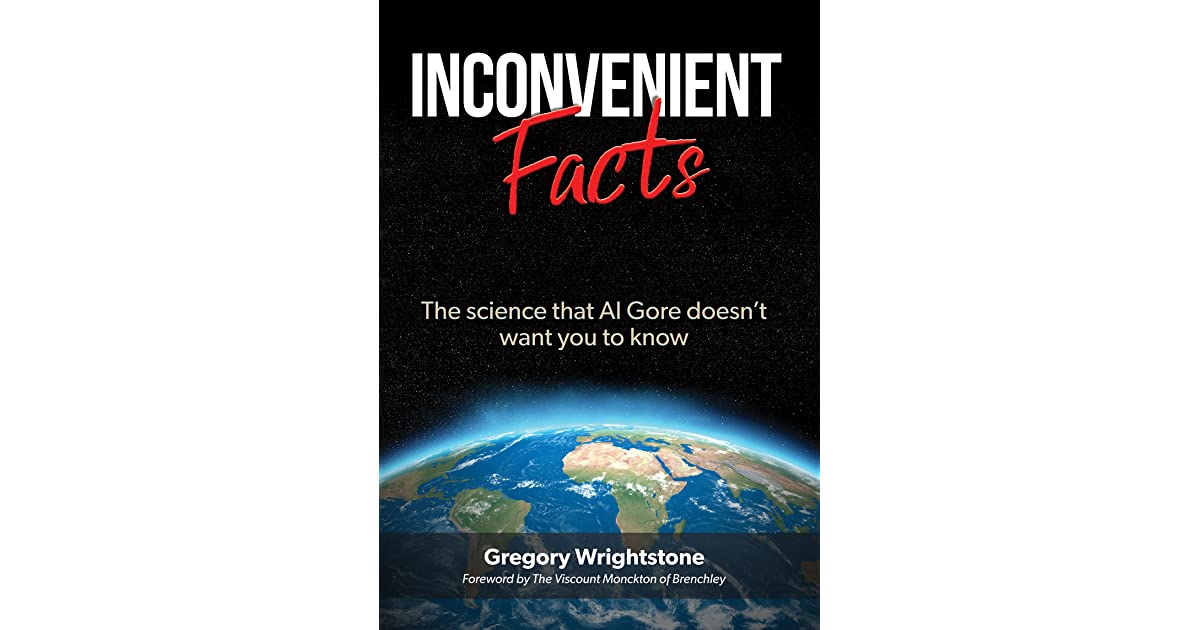
Get the facts about global warming and climate change, not the hysteria.
We’ve assembled a list of books that rationally examine environmentalism, the genuine desire to be good stewards of the planet, and how radicals exploit that notion – not just for their own gain, but to the detriment of both the planet and the people on it.
The Skeptical Environmentalist: Measuring the Real State of the World
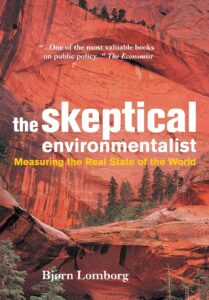
It might just be the most powerful book on global warming that there is. Bjorn Lomborg, a former Greenpeace member, takes a reasoned approach to the issue of climate change using hard facts.
He doesn’t argue that there is climate change, or that we need to do something about it. Instead, he takes a pragmatic approach, weighing the pros and cons, and limited financial resources, to highlight what can be done reasonably.
At the same time, he goes after environmental organizations that manipulate data to create a picture that’s worse than it really is.
While those on the Left might view Lomborg as a radical, in reality his approach is perhaps the soundest and most balanced one being presented.
Climate Confusion: How Global Warming Hysteria Leads to Bad Science, Pandering Politicians and Misguided Policies That Hurt the Poor
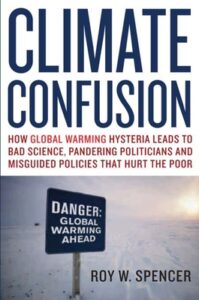
Despite the constant media frenzy around apocalyptic global warming scenarios, the facts remain obscured.
In “Climate Confusion” Roy W Spencer sheds light on the basics, from the global climate and its cycles to man’s impact on it. He addresses key misconceptions and how government funding feeds the climate hysteria through research grants.
And while tax dollars are wasted, Spencer suggests, the largest victims are those in developing countries.
Inconvenient Facts: The science that Al Gore doesn’t want you to know
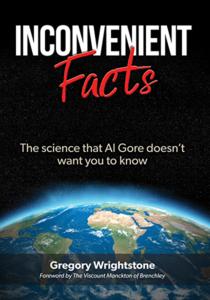
Its not hard to be skeptical of climate change alarmism, but with government and corporate media only telling their narrative, where can one turn to get the truth?
With that mission in mind Gregory Wrightstone has written “Inconvenient Facts” detailing 60 critical points you can arm yourself. Sourcing peer-reviewed literature and government sources, he details in plain English, with helpful charts and graphs, that the state of the environment is actually getting better.
The Politically Incorrect Guide to Global Warming (and Environmentalism)
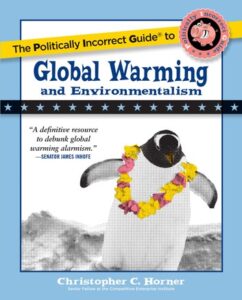
What’s behind the Left’s climate alarmism? According to Christopher C. Horner it’s simple: control.
In “The Politically Incorrect Guide to Global Warming and Environmentalism” he asserts that doomsday scenarios are being used, tactically, to exploit fear and good will in order to expand government powers.
Calling the current environmental agenda “green on the outside, red to the core,” he unmasks their true motivation. At the same time, he confronts weak arguments, exposes myths and calls-out lies.
An easy read, with light-hearted snark, this book delivers the facts.
The Really Inconvenient Truths: Seven Environmental Catastrophes Liberals Don’t Want You to Know About–Because They Helped Cause Them
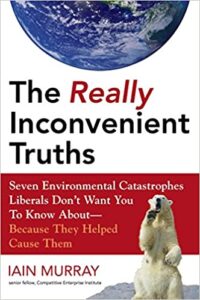
If owning the Libs is one of your favorite passtimes, this book will prepare you with the ammo you need to snipe down your Leftist friends.
In “The Really Inconvenient Truths” Iain Murray exposes the hypocrisy of the Left by detailing seven catastrophes brought about by the people who claim to defend the marginalized.
Not only are environmentalists and Democrats not helping, they’re policies are actually making the planet worse.
Unstoppable Global Warming: Every 1,500 Years, Updated and Expanded Edition
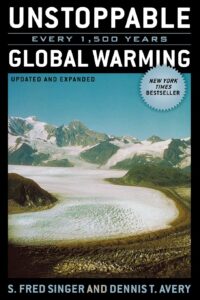
Is global warming real? Absolutely. Is it man made: not a chance.
In this deeply scientific yet easy-to-understand book, authors S Fred Singer and Dennis T Avery detail how a warming climate is part of a natural 1500-year solar cycle. Studying historical data and scientific evidence from ice cores, sediment, tree rings and stalagmites, they showcase how man’s impact on the climate is irrelevant.
Perhaps even more intriguing is that the world’ greatest periods of development have come during the world’ warmest periods and how humanity can not only survive this current phase, but actually thrive.